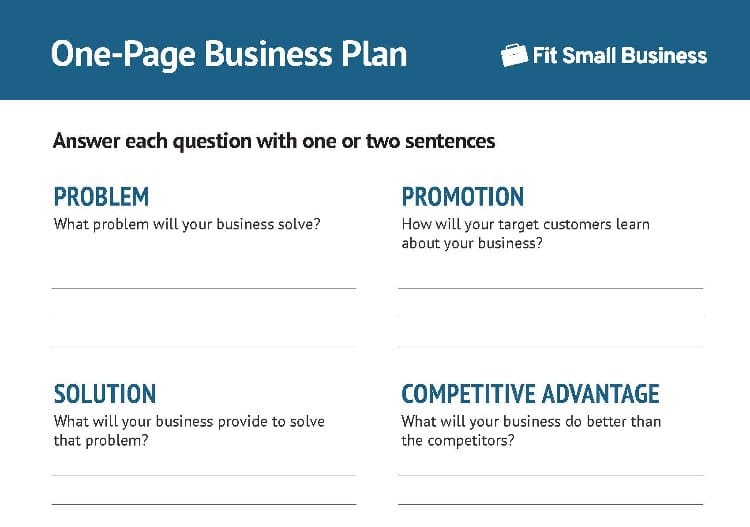With the janitorial services industry currently valued at $98 billion, starting a cleaning business may be a profitable venture, whether you’re looking into residential or commercial cleaning services. In this guide, we go through the steps and talk about low-cost strategies to get your cleaning business up and running on a budget.
As you're starting your own business, you're going to need to keep your books in order. QuickBooks Online is our pick for the best overall small business accounting software. Get 50% Off for 3 Months |
|
You can also download our complete guide to starting a business, which you can reference later:
Step 1: Choose Your Type of Cleaning Business
The first step you need to take is to determine if you’d like to create a residential or commercial cleaning business. Your decision here will affect everything else you do, from the financing to the equipment to the marketing.
Most cleaning companies don’t provide services to both residential and commercial customers because each includes different services and requires unique equipment. You also need to decide if you’re starting your biz from scratch or purchasing a cleaning-based franchise.
Residential vs Commercial Cleaning Business
A residential cleaning service specializes in homes while a commercial cleaning business specializes in businesses. But it gets more complicated. Typically, the residential cleaning business is a lower cost to start (primarily because of simpler equipment needs); however, commercial can be very lucrative because of the add-on services such as floor waxing, window washing, and deep disinfecting.
Generally, residential cleaners earn a slightly lower hourly wage than cleaners who provide services to businesses, government buildings, schools and universities, and other commercial clients. However, there are more residential cleaners than commercial ones, suggesting higher demand for those services.
Industry | Employment | % of Industry Employment | Hourly Mean Wage | Annual Mean Wage |
|---|---|---|---|---|
Services to Buildings/ Dwellings | 824,710 | 38.32 | $14.22 | $29,570 |
Elementary/ Secondary Schools | 302,620 | 3.74 | $16.76 | $34,860 |
General Medical/ Surgical Hospitals | 73,650 | 1.32 | $15.85 | $32,970 |
Local Gov’t, excl. Schools/ Hospitals | 64,910 | 1.21 | $19.02 | $39,560 |
Colleges/Universities/ Professional Schools | 62,130 | 2.08 | $16.85 | $35,040 |
Employment and wage per industry for janitors and cleaners, except maids and housekeeping cleaners
(Source: US Bureau of Labor Statistics)
You also want to consider that residential is done during the day, and commercial is done during the night. Also, residential cleaning is more detail-oriented because the homeowner is more likely to inspect your work and be particular about how you do certain tasks, such as arranging pillows and blankets. Commercial covers more square feet, so you’ll have to work faster and be less detail-oriented than residential.
From a business perspective, the residential space has more customers available. Overall, your choice between residential and commercial depends on your budget for equipment and lifestyle.
Should You Buy a Cleaning Franchise?
Cleaning franchises are popular—you can choose from many brands. One aspect that makes cleaning franchises appealing is they’re generally low-cost to start. Many also provide an option to start from home or part-time. For example, the Stratus Building Solutions franchise costs as little as $1,000 down.
Now, it’s important to remember that not all cleaning franchises are low-cost. Some require up to a $150,000 investment. These types of franchises often require vehicles, a location, and advanced equipment.
Many new business owners choose to buy into a franchise because it provides business and industry training. For example, The Maids offers seven weeks of business training, plus two days of culture training at headquarters, six days of admin training, and four days of on-site training at your location. It’s a cleaning business boot camp!
Here are the top cleaning franchises to consider:
Franchise | Type | Initial investment |
|---|---|---|
Commercial | Not listed | |
Commercial | $4,000–$100,000 | |
Commercial | $1,250–$50,000 | |
Commercial | $6,000–$37,000 | |
Commercial | $11,000–$339,000 | |
Residential | $94,560–$119,800 | |
Residential | $63,000–$141,000 | |
Residential | $94,480+ | |
Residential | $112,000–$156,000 |
You might also consider ISSA (one of the top five janitorial companies)—it’s actually an association that can recommend franchising options for you.
Step 2: Write a Quick Business Plan
The next step to starting a cleaning business is to create a one-page business plan. You should also research the startup costs and make financial projections by forecasting how much money the cleaning business will earn and spend over the next two years.
If you’re seeking a large amount of financing from a bank or investor, you will need a traditional business plan. Most people use business plan software to assist with planning financial projections. If you find yourself wondering what an income statement, balance sheet, or breakeven point is, you will likely need software.
Step 3: Get Necessary Funds
Ideally, you’ll want to use personal funds to start the business so you can avoid debt. That may not be possible if you’re starting a cleaning business with vehicles or a physical location. Whatever type of business you’re opening, remember you’ll still have to pay back the debt if the company fails.
Consider the following funding options to start your cleaning business:
- Personal funds: Before using any of your personal funds to start the biz, transfer the money into a business bank account (discussed below).
- Crowdfunding: This is a funding option many new cleaning businesses overlook. Use crowdfunding to raise funds from potential customers, such as family and friends, before opening. Use the funds to purchase equipment and then perform the prepaid services.
- Credit cards: We don’t recommend taking on a substantial amount of debt to start your first business. However, if you choose to take on debt, a credit card is an option. If you have good credit, you can get a 0% introductory APR for 12 to 18 months.
- Personal loan: Generally, we recommended you don’t take out a personal loan to start a cleaning business. The interest rate is relatively high (above 12%) because the loan isn’t secured to collateral.
- Home equity loan: If you have equity in your home, you can take out a loan to start your business. Because this loan is tied to your home as collateral, the interest rate will be lower.
- Rollover for business startups (ROBS): A ROBS is when you use 401(k) money to open a business—it is complicated and potentially risky, so carefully consider it. It is also only available for entities organized as a C corporation (C-corp).
Until you have at least a three-year history of income and expenses, or paid off equipment such as vehicles, don’t apply for a traditional bank loan or Small Business Administration (SBA) loan. Typically, banks don’t lend to startups.
If you’re franchising, a bank loan or franchise financing could be an option. The franchise may have a relationship with a bank and can organize funding for you. A bank may be open to financing a franchise if the overall failure rate is low.
Step 4: File Legal Paperwork
Once you have the funds to start your cleaning business, it’s time to get your legal paperwork in order. You’ll need to get an employer identification number, register the business as a legal entity, and open a business bank account.
Step 5: Get Proper Licenses & Insurance
A cleaning business is likely to need a license in the city where it’s operating. Regarding insurance, all cleaning businesses will need at least general liability insurance to cover any damages in a customer’s home. If you’re hiring employees, you’ll also need workers’ compensation insurance.
These are the general requirements you should look into:
Step 6: Purchase Cleaning Equipment
You’re almost ready to accept your first customer! But first, you need to purchase the required equipment to get the job done. We’ve compiled a list of low-cost items to get your cleaning business started on a budget:
- Cleaning uniform or apron
- Paper towels
- Microfiber cloths
- Latex gloves
- Scrubbing brushes
- Toilet brush
- Grout brush
- All-purpose cleaner
- Window cleaner
- Wood cleaner
- Tile and grout cleaner
- Extendable duster
- Sponge
- Disinfectants
- Vacuum
- Bucket
- Mop
If you’re starting on a budget, don’t get overwhelmed with the number of cleaning supplies—or brands. Remember that when first starting out, purchase items that will get the job done. Don’t spend more money—or go into more debt—than necessary.
Regarding your wish list cleaning items, write them down. You may want that premium vacuum now but resist the urge to acquire it. List your wish list items in your business plan. Indicate at what net income level you’ll make each purchase. You’ll have milestones to look forward to in your business!
Step 7: Market Your Cleaning Business
Let’s talk about low-cost and free strategies to get your cleaning business noticed. Online marketing such as Google My Business, social media, and online directories are all free. Physical marketing materials will have a cost, but you can use them creatively to make a memorable impact on customers.
Online Marketing
Consider these free online marketing strategies to get your cleaning business in front of a digital audience:
- Google Business Profile: Google’s free listing and business profile is especially helpful for attracting local customers. When a potential customer searches for what you sell (residential cleaning business), they’ll read your Google Business Profile before your website.
- Social media: A great best piece of advice for social media success is to choose one platform and do it well. Choose whichever social platform you enjoy the most (for cleaning, it could be Facebook, Instagram, or TikTok) and grow your following there.
- Local business directories: For a cleaning business, you should be listed on at least Yelp and Yellow Pages. To determine other directories to be on, do a Google search for the specific service you provide, and see what directories show in the results. Also, as we mentioned earlier, consider joining cleaning industry trade association ISSA.
Physical Marketing Materials
There are several options for physical marketing materials, such as business cards, flyers, and postcards. Because we’re discussing marketing on a budget, we’re going to focus on one low-cost marketing strategy.
After every cleaning of a new home, leave a card with a handwritten note. In the note, thank the homeowner for their business and ask them to pass your card to anyone interested in getting their home cleaned.
When promoting your business with marketing materials, make sure to leave a small gift such as chocolates or something the homeowner would find beneficial, such as a small hand sanitizer. This is a persuasion tactic called reciprocity. This personal marketing strategy makes an emotional connection with the homeowner and makes them more likely to reciprocate a customer in return.
Network in Your Community
In-person networking is a memorable and effective way to get your business in front of potential customers. Experiment with attending several small business organizations in your city such as the Chamber of Commerce or Rotary Club. To make a lasting impact on an organization, volunteer to be in a leadership position.
Bottom Line
We’ve discussed the necessary steps and several low-cost strategies to get your cleaning business up and running. If you’re a first-time business owner, consider starting a low-cost franchise to get the training and support you need. Once you have your first customers, you need to do great work—a clean home or office is your best marketing.
You May Also Like…
- Our complete guide to starting a business
- How to make a website for your cleaning business


